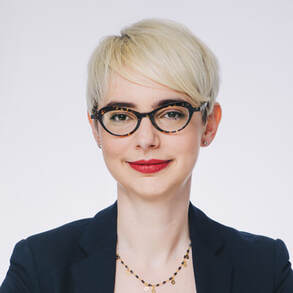 This week in the Women Leading in Law blog series, we learn about the career and law practice of Hilary Book. Read on for some great tips for lawyers: 1. Tell me a little about your practice or business. I founded my own commercial litigation firm, Book Law, about 1.5 years ago after a dozen years practicing at other firms on Bay Street. We do everything from breach of contract cases to professional negligence to real estate disputes, with a lot of experience in oppression and fraud cases. Our focus is on providing smart, practical advice and representation. This means helping clients make decisions that are in their best long-term strategic interests, and finding creative solutions rather than just marching rigidly through each step of the litigation process. One of the things I love most about my practice is its diversity, both in terms of the cases we handle and the people we represent. We act for a wide range of clients, from publicly traded companies to family-owned businesses to individual entrepreneurs, in all sorts of different industries. We also act for clients from many different cultural communities, with many different life stories. The diversity of my practice requires constant learning on my part, which is a joy. 2. Why did you go to law school? In some ways, it was a default. I always loved going to school, but I didn’t want to go into grad school or academia – I do much better with structure and frequent deadlines! I enjoyed some of the work I’d done in undergrad in legal philosophy and restorative justice, and thought law school would be a good way to continue to explore Big Questions. I went to law school planning on becoming a “constitutional lawyer”, without any real idea of what that meant. Then I got to law school and found that constitutional law was my least favourite course, and that I really enjoyed my private law courses. 3. How did you get to where you are today? Design? Chance? Both? A bit of both. I knew I wanted to be a courtroom litigator, and I actively sought out the experiences and work that I thought would get me there. At the same time, no one succeeds without a little of bit of luck to be in the right time at the right place. As for opening my own firm, that’s not something I ever planned to do or thought I could do, but as it turns out, I was wrong. It just goes to show that, even if you do have detailed career plans, you need to stay open to new ideas and adapt accordingly. 4. What is your most significant achievement? What are you proud of? Book Law. I started the firm with a lot of confidence in my legal abilities, but I was a bit more concerned about my ability to generate work. I’m really proud that I’ve created a financially successful firm while doing the work I like doing, and practicing in a way that accords with my values. 5. What are some key challenges, and more importantly, opportunities for women in law? In commercial litigation, it can still be really challenging for women to be taken seriously as advocates and, especially, as lead counsel. This is very problematic when it comes to landing new work. From time to time I’m told outright that a client doesn’t want to retain me because I’m a woman (which at least has the virtue of confirming that it isn’t all in my head), but more often I hear variations on “you seem really nice, but are you tough enough to handle my case?” (They always come around once they see me in court, but if I don’t get hired in the first place, they don’t get the chance.) I believe that women have the opportunity to be leaders for change in law. The challenges that many of us still face give us perspective on the systems, attitudes and practices that serve to exclude so many. While we still have a long way to go, there is a lot of openness now to hearing our perspectives and voices. 6. What advice would you give a woman starting her legal career? Don’t be afraid to be ambitious. Don’t be afraid to ask for what you want. Be a smart and strategic advocate for yourself, just as you are for your clients. Be true to yourself – your values, your interests, your goals. Take care of yourself, physically and mentally – it is not in the best interests of you, your clients or your firm for you to burn out. We all need support, so nurture your network. Stay in touch with classmates, join professional organizations and be an active volunteer. Seek out mentors and sponsors, and be a generous mentor yourself. These relationships are critical to sustaining you through a long and happy career that will inevitably have ups and downs. --------------------------------------------------------------------------------------------------------- Thanks Hilary for taking the time to participate in this series. I started this blog series because I was tired of hearing about women leaving law and wanted to hear about women leading in law. The "Women Leading in Law" series focuses on good news stories and highlights amazing women succeeding in the legal profession. Each post includes the profiled lawyer's answers to six questions. Prepare to be inspired! ICYMI - previous posts profiled the following amazing lawyers: Margaret Waddell, Nandi Deterville, Jennifer Quaid, Maryann Besharat, Cynthia Mason, Roots Gadhia, Evelyn Ackah, Carrisa Tanzola, Sarah Leamon, Robin Parker, Lorin MacDonald, Karen Yamamoto, Victoria Crewe-Nelson, Lynne Vicars, Kemi Oduwole, Anne-Marie McElroy, Jennifer Gold, Jordana Goldlist, Megan Keenberg, Yadesha Satheaswaran, France Mahon, Sarah Molyneaux, Richa Sandill, Vivene Salmon, Kim Whaley, Alisia Grenville, Frances Wood, Maggie Wente, Anita Szigeti, Neha Chugh, Christy Allen & Nancy Houle, Suzie Seo, Kim Gale, Alexi Wood, Melissa McBain, Erin Best, Gillian Hnatiw, Melanie Sharman Rowand, Meg Chinelo Egbunonu, Lisa Jean Helps, Nathalie Godbout Q.C., Laurie Livingstone, Renatta Austin, Janis Criger, May Cheng, Nicole Chrolavicius, Charlene Theodore, Dyanoosh Youssefi, Shannon Salter, Bindu Cudjoe, Elliot Spears, Jessica Prince, Anu K. Sandhu, Claire Hatcher, Esi Codjoe, Kate Dewhirst, Jennifer Taylor, Rebecca Durcan, Atrisha Lewis, Vandana Sood, Kathryn Manning, Kim Hawkins, Kyla Lee, and Eva Chan.
1 Comment
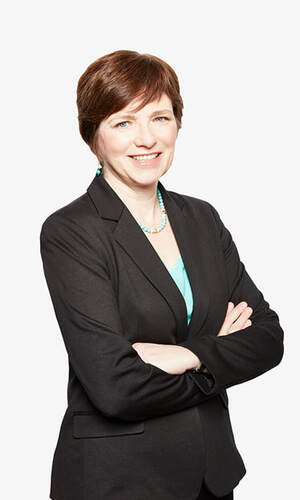 I first met the next leading lawyer in this series, Margaret Waddell, at an Advocates' Society Women in Litigation conference. She was the mentor assigned to my table of women litigators. Marg had a lot of valuable and no-nonsense advice to give. It was much appreciated by everyone at the table. Read on to learn Marg's story and some of that advice: 1. Tell me a little about your practice or business. In June 2017, I opened Waddell Phillips PC with my two partners, John K. Phillips and Julia Tremain. WP is a litigation boutique, which has now grown to a total of 8 lawyers, two contract lawyers, an articling student, Lakehead placement students, summer student and 8 support staff. My practice focusses on plaintiff side class actions, but I still also act on commercial litigation and executive employment matters, and some defence work on class actions. The class actions that we have underway or under investigation cover a broad gamut, including institutional abuse, consumer protection, product liability, medical devices, privacy breaches, and securities misrepresentations. We are always keeping our eye open for the next case that captures our interest, and that meets our firm objective of providing access to justice for victims of injustice or corporate malfeasance. 2. Why did you go to law school? I knew that I wanted to be a lawyer from a very young age. I was inspired by the character of Beth Davenport on the TV show Rockford files. Beth was a strong, independent woman, who spent a lot of time getting her client out of trouble with the law. However, criminal law was never of interest to me. My desire to become a lawyer was more based upon the fact that it would lead to a career that would allow me to be self-determinative, while at the same time I could provide advice and guidance to others who had brushed up against the legal system and needed help. Helping those in need has always been a strong motivating factor for me. 3. How did you get to where you are today? Design? Chance? Both? If you had asked me 30+ years ago what I would be doing now, I’m pretty sure that running my own eponymous firm would not have been anywhere near the top of the list. When I left law school, I certainly knew that I wanted to be a litigator, but more than that, I had no idea. I was pretty naïve – a small town girl with no lawyers in the family or our circle of friends, and no concept of how a business actually runs. I was also very young (I started law school after only 2 years of undergrad). However, along the way I had the great fortune to have some amazing mentors, who taught me the ropes; but also gave me a lot of leeway to learn through my own successes and failures while running files on my own, with only a light touch of supervision. I feel very fortunate to have matured as a lawyer when this was the norm, knowing that it has become increasingly rare for junior lawyers to be entrusted with clients’ cases from the beginning to the end. I also had an abundance of role models – who represented both what I would like to become and what I would never want to be. I believe that you need exposure to the good, the bad and the ugly in order to really come to terms with who you are in this profession, and what you can aspire to achieve. I learned from all these people, and eventually figured out what I really wanted to do, and that meant being my own boss, rather than trying to conform to someone else’s ideal of what the practice of law should look like. As for the practice area, that was entirely by chance. When I was called to the bar in 1989, the Class Proceedings Act had not yet been enacted. That came three years later. Contingency fees had been forbidden in Ontario up until that time, and when the CPA came into force, the thought of taking on such massive cases, and carrying the extraordinary risk that is associated with them seemed potentially foolhardy and definitely a gamble. That was not me. In the early years of practice I was no risk-taker. However, over time, I cautiously waded into the class action world, and the more exposure I had, the more I embraced it. The CPA is such an influential tool for enforcing the rights of the disenfranchised – it gives power to the powerless. It is a serious behaviour modification tool, and ensures that institutional and corporate actors can be held accountable for their misconduct. I like that, and it gives me a sense of purpose to know that I am helping people who might otherwise go without a remedy when they have been harmed. 4. What is your most significant achievement? What are you proud of? I don’t think that I have a single most significant achievement. Sure, there have been some great wins along the way, and also some spectacular losses. That comes with more than 30 years in the trenches. But the thing that I am most proud of is to be the only female head of a class action firm in Canada, to my knowledge. I am enormously proud of my firm and the wonderful group of professionals that have joined with me to make it a success. In three years, WP has grown to triple its original size. We have a wide range of class actions underway, and more in the investigation stage. In fact, I have achieved exactly what my original business plan had envisioned, all seemingly without any extraordinary effort on my part to make it happen. I am also immensely grateful to all the lawyers who had the faith in me to refer clients, or who sought me out to co-counsel on actions, and even more so to those that have taken the chance to work with me, when there are obviously safer and potentially more lucrative alternatives available to them. 5. What are some key challenges, and more importantly, opportunities for women in law? The opportunities for women in law are vastly expanded from 3 decades ago. Women entering law are no longer the exception, or seen as a “woman in a man’s world”. I don’t believe that newer calls need to go to the same lengths that those that preceded them had to go to achieve equality. The world is starting to acknowledge that the diversity of views and life experiences that women bring to the profession, although different from their male peers, are equally valid and important. There are more women in leadership roles, and the networks of mentors and sponsors are ubiquitous. These were non-existent when I started in the practice. I think that as the barriers are broken down, and new attitudes take over the profession, particularly about the ways that we practice law, the opportunities are endless. Innovation and technology have made a huge difference and will continue to do so. Women are equally placed to ride that wave, and to design their own futures in a way that suits their circumstances, skills and aspirations. Sure, the big firms will endure, and for many that is the grail that they seek. It will be there for them; but the opportunities for women now are really only circumscribed by their own imagination and desire. 6. What advice would you give a woman starting her legal career? I don’t have a pat answer to this question. It really depends on the woman, and what she wants to get out of her legal career. The obvious advice is to always be prepared – know your stuff – because to succeed in this profession, as in any other, you have to work hard and be prepared for the unexpected. But that’s a trite response. There are a lot of very hard working, highly capable women with successful careers, and they are not happy. I think that unhappiness comes from compromising your own values and desires. So, I would say, don’t do that. Don’t settle in a job that is sucking away your joy just for the security of a pay cheque. Take risks. And be true to your inner self. If you do the things that make you happy and give you fulfilment, you will be a success. --------------------------------------------------------------------------------------------------------- Thanks for these wise words, Marg, and thank you for participating in this series. I started this blog series because I was tired of hearing about women leaving law and wanted to hear about women leading in law. The "Women Leading in Law" series focuses on good news stories and highlights amazing women succeeding in the legal profession. Each post includes the profiled lawyer's answers to six questions. Prepare to be inspired! ICYMI - previous posts profiled the following amazing lawyers: Nandi Deterville, Jennifer Quaid, Maryann Besharat, Cynthia Mason, Roots Gadhia, Evelyn Ackah, Carrisa Tanzola, Sarah Leamon, Robin Parker, Lorin MacDonald, Karen Yamamoto, Victoria Crewe-Nelson, Lynne Vicars, Kemi Oduwole, Anne-Marie McElroy, Jennifer Gold, Jordana Goldlist, Megan Keenberg, Yadesha Satheaswaran, France Mahon, Sarah Molyneaux, Richa Sandill, Vivene Salmon, Kim Whaley, Alisia Grenville, Frances Wood, Maggie Wente, Anita Szigeti, Neha Chugh, Christy Allen & Nancy Houle, Suzie Seo, Kim Gale, Alexi Wood, Melissa McBain, Erin Best, Gillian Hnatiw, Melanie Sharman Rowand, Meg Chinelo Egbunonu, Lisa Jean Helps, Nathalie Godbout Q.C., Laurie Livingstone, Renatta Austin, Janis Criger, May Cheng, Nicole Chrolavicius, Charlene Theodore, Dyanoosh Youssefi, Shannon Salter, Bindu Cudjoe, Elliot Spears, Jessica Prince, Anu K. Sandhu, Claire Hatcher, Esi Codjoe, Kate Dewhirst, Jennifer Taylor, Rebecca Durcan, Atrisha Lewis, Vandana Sood, Kathryn Manning, Kim Hawkins, Kyla Lee, and Eva Chan. 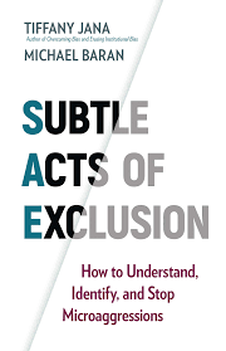 While I normally only review “law” related books for my blog, I believe this book will be beneficial to all lawyers and leadership teams at law firms. Like many of you, I have been reflecting over the past month or so on what I can do to address racism, and in particular anti-Black racism in our country and our profession. I am committed to anti-racism, but know I am not doing enough. Right now, my activism is donation based and I am listening and learning, and I am trying to amplify BIPOC (Black, Indigenous, People of Colour) voices. I have also committed to the Anti-Racist Small Business Pledge compiled for and presented during a town hall on listening, learning and committing to building an equitable, anti-racist organization that I attended in June, organized by Ericka Hines, Rachel Rodgers, and Susan Hyatt. Part of my listening and learning is reading more books on anti-racism and by more diverse authors. The first book I finished was “Subtle Acts of Exclusion: How to Understand, Identify and Stop Microaggressions” by Dr. Tiffany Jana and Dr. Michael Baran. I chose this book because while overt-racism may be easy to spot, we must also not forget about the subtle everyday actions that exclude BIPOC in the legal profession. This book focuses on what are commonly known as “microaggressions”, a term that originated in the early 1970s with the work of Harvard psychiatrist Chester M. Pierce. Microaggressions have been defined as indirect or subtle discrimination against members of a marginalized group. The authors describe these as subtle ways that verbal and non-verbal acts serve to exclude people. They want to reframe the term “microaggressions” to “subtle acts of exclusion” or "SAE" as there are drawbacks to the term “microaggression”. There is a lack of clarity about what a microaggression is and the term is communicating implicitly that it is not really a big deal (just “micro”). Also, the term itself provokes defensiveness (“Can I talk about your microaggression?” “I was not being aggressive!”). The authors prefer the term SAE as these acts are subtle and they serve to exclude people. An example, when someone asks a racialized person “So, like what are you?” or “Where are you really from?” On the surface it might seem like the person is just being curious, however implicitly under the surface they are communicating “You are not normal” or “You are a curiosity”. The book provides several examples of the harm that SAE cause to individuals in general, but especially in the workplace. As they note: “Work should not be a place where we are subtly injured on a regular basis until we have retreated into little cocoons of isolation and misery.” It is important that SAE are addressed at work and, I say, especially at law firms. As the authors observe: "Whether in the form of exaggerated stereotypes, backhanded compliments, unfounded assumptions, or objectification, SAE are insidious and damaging to our coworkers and colleagues." What stood out for me was the stark truth that everyone commits SAE against others. Even the authors, experts on equity, diversity and inclusion, shared SAE they initiated. Thinking back, I cringe at some SAE I have said or done. The authors repeatedly underscore the point that SAE are never about intent. Many of us are well-intentioned in our comments or actions, but that is not the point. While I might have thought I was saying one thing, in reality, I was implicitly communicating something quite different. And that is not okay. The book sets out a framework for identifying what SAE are implicitly communicating: You are invisible. You are inadequate. You are not an individual. You don’t belong. You are not normal. You are a curiosity. You are a threat. The authors provide a step by step guide and recommended practices when SAE happen from the perspective of everyone involved, including the person who is being excluded by the SAE (the subject), the person who says or does the SAE (the initiator) and anyone who overhears or witnesses the SAE (the observer). The observer role is significant as the observer can take this opportunity to become an ally. The book also gives advice on how to have a bigger conversation about SAE at work. SAE need to be addressed in the culture of the workplace or law firm. The goal being that there is an environment in which all people involved in an SAE know how to respond in a productive way. The authors point out that: “Organizationally, the culture can normalize the act of intervening by helping people recalibrate their expectations that SAE are a common part of human behaviour.” It is not about punishing people who slip up, it’s about “making room to name the problem and intervene in the moment to prevent further harm”. Some suggested language is provided by the authors to use when an SAE occurs. Some of the examples sound a little contrived to me, but they do provide some guidance and some language to start with that you can make your own. The book is extremely non-judgemental and comes from a place of wanting to help and make change rather than calling out bad behaviour or bad people. (The authors prefer “calling people in” to a conversation.) It is an easy and accessible read and I recommend it to anyone who wants to learn more about this subject. I recommend using this book to guide a conversation with the members of your firm, including all lawyers and staff. There are several helpful nuggets of wisdom and advice in this book. Many lawyers are subtly excluded in law firms all the time. How can we stop that? Start with reading this book and committing to change. Next Up on my Reading List: Policing Black Lives: State Violence in Canada from Slavery to Present by Robyn Maynard. 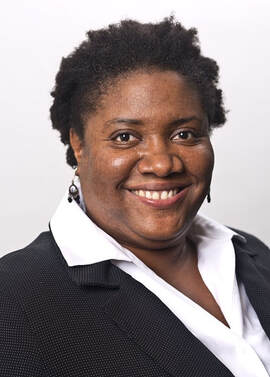 I met Nandi Deterville when we both were volunteers on the executive for the Ontario Bar Association's Women Lawyers Forum. Pre-COVID we would also often run into each other at several networking events (need advice on networking? Go to Nandi, she is an expert). Nandi inspires me every time I see her with her wit, compassion, and tenacity. 1. Tell me a little about your practice or business. I practice Canadian Immigration and Estate Planning lawyer with AP Lawyers in Pickering. The Firm specializes in Family Law, Immigration, Real Estate and Estate Planning Law. It has been rated number 1 family law firm in Durham Region. Angela Princewill, the founding partner, is a mediator and a member of the Family Dispute Resolution Institute of Ontario. At AP Lawyers, our mission is to help make peoples’ family lives better. This could involve (1) drafting cohabitation agreements, marriage contracts or negotiating favorable settlement in the case of separation or divorce, (2) assisting families with selling their homes and buying a new one so they can move into the next, and (3) uniting families and/or helping families through the Canadian immigration processes. We are very passionate about our mission of making peoples’ family lives better and are recipients of the Top Choice Awards for the Top Family Law Firm in the Durham Region for the previous five consecutive years. 2. Why did you go to law school? I’ll confess that to this day, the process surround my decision to go to law school is not very clear. The year I started law school, I had been set to start my masters’ studies in International Development in the United States, by late spring, early summer I had applied and was accepted to Law School in England. At the time I began I didn’t think that I would actually practice law but use the qualification to guide my path as an international policy advisor. Once in Law School however I realised that it was exactly where I needed to be. I loved the whole process of qualifying in the practice of law. 3. How did you get to where you are today? Design? Chance? Both? Timing, Timing, Timing. In March of the year that I started law school I had been, as mentioned previously, actively planning on pursuing a masters program. But by September I was attending my first class of Law School in the UK. Things just seemed to fall into place once I made the decision to apply. After qualifying, I started practicing in my home country of Saint Lucia. I certainly did not envisage that I would have moved to Canada and qualify to practice here. The processing of my own Immigration application was delayed for years, but then finalized just when I was looking for alternatives to my practice. As an NCA student, I had not appreciated the importance of the timelines in the Ontario licencing process. As a result I had not been searching for the type of articling position that I wanted. The Law Practice Program (“LPP”) turned out to be the perfect choice for me as my previous practice was in a General Practice small firm. The format of the LPP allowed me to get the experience I wanted in multiple practice areas and my placement allowed me to explore an area of practice that I had not considered before. I applied for my current position after seeing the position posted in a Facebook post. As luck would have it, minutes after I initially read the advertisement, the post was inadvertently deleted and I could not find it. I decided to submit my application, in any event not knowing if the post was made in error, and the rest as they say is history. 4. What is your most significant achievement? What are you proud of? On Tuesday April 7, 2015 while attending my first OBA event by myself I could not have imagined that today I would be the incoming Vice-Chair of the OBA’s Women Lawyers Forum (“WLF”). As a foreign trained, new Canadian, I realized quite quickly that I needed a network of like-minded practitioners to help guide my career. The benefit of the free/reduced cost programing available to law students, including NCA candidates was very helpful. I was able to attend an event every month and soon found myself learning so much. The programs of the WLF were incredibly enlightening and inspiring. Getting onto the executive for the first time during the 2016-2017 term was such a proud moment. I am proud to have the opportunity to be involved with the conceptualization and planning of each program that our section executive successfully produced during my time on the executive.. 5. What are some key challenges, and more importantly, opportunities for women in law? From my perspective as a black, female, Foreign Trained Lawyer (“FTL”), there are certainly what appears to be a steeper curve in getting through the licencing process and securing a well-paying position in the profession. Typically FTLs face the difficulty of employers understanding how their skill set and experience translates to working within the Canadian legal system. As has been discussed openly in recent times, the challenges faced by black women in the profession mirror that of black women in other professions in our society. However, our lived experience is also our greatest strength. Our mere existence is proof that we are adaptable, capable and can thrive. The opportunities are really everywhere we are willing to find them. A challenge should not mean a reason not to do. I am a firm believer that we need to perform the type of work that feeds our soul and leaves our community better than when we got there. Network, network, network. That right position that allows you to shine is there waiting for you to work towards it. 6. What advice would you give a woman starting her legal career? Be comfortable with being uncomfortable. I truly believe that a bit of discomfort is my greatest motivator and teacher. If what you’re doing isn’t just a bit challenging then maybe you need to add a more challenging task, this can only improve you skills. We are in the fortunate position of being in a career that requires continuous learning, so take as many opportunities to learn not just how to do your job with the greatest efficiency but perhaps to broaden your knowledge base in unrelated fields. My other bit of advice is that you need to find your community. You don’t need to make all the mistakes yourself, learn from others. There are many like-minded people out there that are willing to offer you support. Reach out, make that uncomfortable call or send that awkward email. It might just be this thing you need to find your champion. I am fortunate to have such champions in my corner. -------------------------------------------------------------------------------------------------------------------- Thank you Nandi for participating in this series and congratulations on your new role as Vice-Chair for the OBA WLF! I started this blog series because I was tired of hearing about women leaving law and wanted to hear about women leading in law. The "Women Leading in Law" series focuses on good news stories and highlights amazing women succeeding in the legal profession. Each post includes the profiled lawyer's answers to six questions. Prepare to be inspired! ICYMI - previous posts profiled the following amazing lawyers: Jennifer Quaid, Maryann Besharat, Cynthia Mason, Roots Gadhia, Evelyn Ackah, Carrisa Tanzola, Sarah Leamon, Robin Parker, Lorin MacDonald, Karen Yamamoto, Victoria Crewe-Nelson, Lynne Vicars, Kemi Oduwole, Anne-Marie McElroy, Jennifer Gold, Jordana Goldlist, Megan Keenberg, Yadesha Satheaswaran, France Mahon, Sarah Molyneaux, Richa Sandill, Vivene Salmon, Kim Whaley, Alisia Grenville, Frances Wood, Maggie Wente, Anita Szigeti, Neha Chugh, Christy Allen & Nancy Houle, Suzie Seo, Kim Gale, Alexi Wood, Melissa McBain, Erin Best, Gillian Hnatiw, Melanie Sharman Rowand, Meg Chinelo Egbunonu, Lisa Jean Helps, Nathalie Godbout Q.C., Laurie Livingstone, Renatta Austin, Janis Criger, May Cheng, Nicole Chrolavicius, Charlene Theodore, Dyanoosh Youssefi, Shannon Salter, Bindu Cudjoe, Elliot Spears, Jessica Prince, Anu K. Sandhu, Claire Hatcher, Esi Codjoe, Kate Dewhirst, Jennifer Taylor, Rebecca Durcan, Atrisha Lewis, Vandana Sood, Kathryn Manning, Kim Hawkins, Kyla Lee, and Eva Chan. |
Erin C. Cowling is a former freelance lawyer, entrepreneur, business and career consultant, speaker, writer and CEO and Founder of Flex Legal Network Inc., a network of freelance lawyers.
Categories
All
Archives
December 2022
|
|
(C) 2014-2024 Cowling Legal. All rights reserved.
|
Please note I am not currently practicing law.
Information on this website does not constitute legal advice and is for informational purposes only. Accessing or using this website does not create a solicitor-client relationship. See website Terms of Use/Privacy Policy. info@cowlinglegal.com
3080 Yonge Street, Suite 6060 Toronto,ON M4N 3N1 (appointment only) |
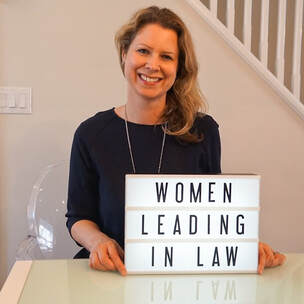
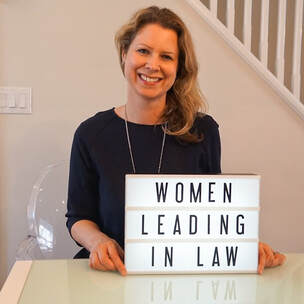
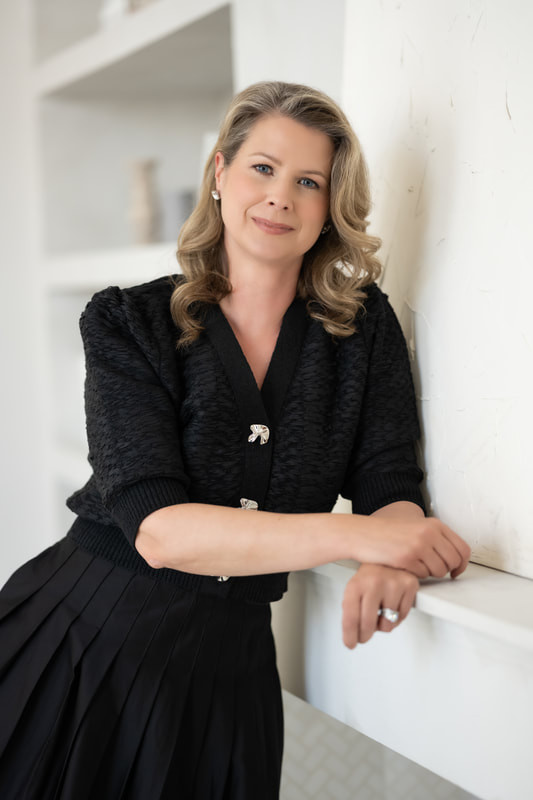





 RSS Feed
RSS Feed
